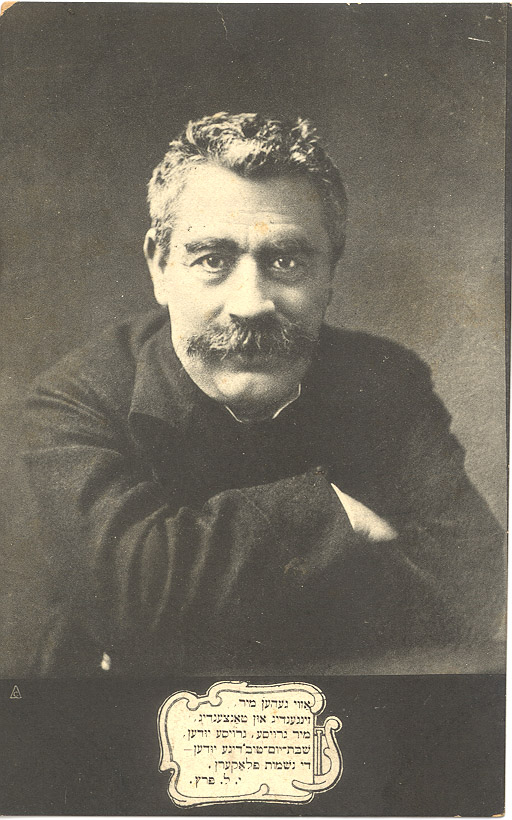Isacco Leyb Peretz, conosciuto in yiddish come Yitskhok Leybush Perets e in polacco come Icchok Lejbusz Perec o Izaak Lejb Perec , è stato uno scrittore polacco autore di racconti brevi e drammi in lingua yiddish.
È considerato, insieme a Mendele Moicher Sforim e a Sholem Aleichem, uno dei tre grandi classici della letteratura yiddish. Tra i tre, fu l'unico ad avere un contatto così stretto con la lingua e la letteratura polacca, al punto da poter tradurre lui stesso alcune delle sue opere in quella lingua, e, nel caso ad esempio del racconto L'anima, aggiungere addirittura un finale non presente nella versione in yiddish. Scrisse anche in ebraico e fu un vero poliglotta avendo una perfetta conoscenza del russo, del tedesco e del francese.
Nonostante questa sua grande apertura verso il mondo letterario europeo, o forse proprio in virtù di essa, Peretz non fu mai un rivoluzionario universalista e rimase piuttosto freddo rispetto alle tesi più radicali del movimento dell'Illuminismo ebraico , e soprattutto del socialismo internazionalista e dell'allora nascente movimento operaio. Più che all'abbattimento delle classi e al radicalismo sociale, Peretz mirava al riscatto di quelle classi povere, ed emarginate legate agli chassidim, con l'obiettivo però non di eliminarle, livellando socialmente e culturalmente le loro differenze, ma al contrario di dar loro pari dignità in una società multiculturale, dove proprio quelle differenze potessero essere considerate un valore più che un ostacolo all'integrazione.
Questo suo forte legame con la tradizione ebraica e il suo rispetto per i valori di quella tradizione, spesso così controversi in una società in evoluzione, fanno di lui un rappresentante emblematico di quel mondo yiddish così ricco e variegato nel quadro culturale dell'Europa orientale dell'epoca, che verrà annientato qualche decennio dopo la sua morte proprio da quei radicalismi sociali e politici che hanno caratterizzato il Novecento.
Wikipedia
✵
18. Maggio 1852 – 21. Marzo 1915
